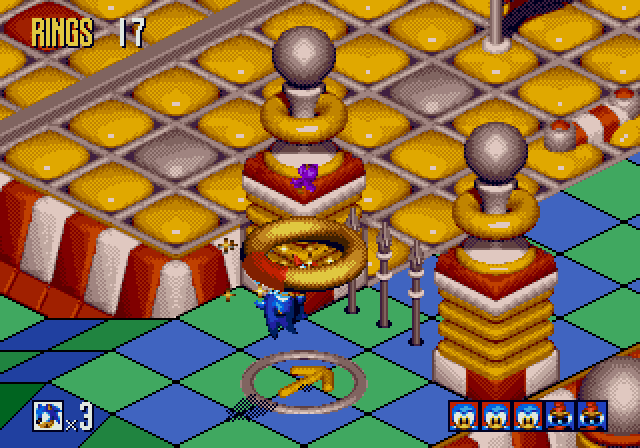SCENE I
[Doney & Sid’s living room, both Doney & Sid sitting on couch.]
Sid:
Doney, glimpse this shit:
I made a bong out o’ a lightbulb. This’ll make moundin’ bank.
Doney:
Keep your delusions to yourself.
Some o’ us accept our mediocre, minimum-wage place in life.
Sid:
Well a’least in my delusions I get lots o’ sex.
[Li’l did Sid know, there’d be 1 li’l hitch in his plan…]
Sid:
Man, I’m not s’posed to hear voices till after I get drunk.
SCENE II
[Doney & Sid’s living room. Sid sitting on couch with phone up to his face.]
Sid:
Chester, you gotta come o’er & see this new invention I invented.
Chester:
You know, Sid, I’d love to, but… you’re a dumbshit.
Sid:
O, come on: you can’t have other plans—you don’t e’en have any backstory.
Chester:
Fine; but only ’cause I’m already @ your house, anyway.
¿Now where is it?
[Sid drops phone & looks round couch.]
Sid:
Ah, shit. It became invisible.
[Puts hands round mouth.] Libby, where’d you put it.
Libby:
[From outside.] You still ne’er let me in your house.
Sid:
¡No ’scuses, asshole!
SCENE III
[Doney & Sid’s living room. Sid & Chester sitting on couch.]
Chester:
OK, ¿where was the last place you saw it?
Sid:
Uh… Doney’s hand.
Chester:
Well, there you go.
Sid:
Aw, ¿but who the fuck knows where Doney put his hand?
Chester:
Let’s not answer that.
Just wait till Doney comes home.
Sid:
No, no, no. I’m way too high & drunk to do anything that responsible.
We’re bustin’ in & gettin’ it.
Chester:
¿& risk ruining your brother’s career?
¿For something so petty?
Sid:
We’re bustin’ in & getting’ it.
Libby:
¡Cool! I call shotgun.
Sid:
[Shouts.] Sorry, Lemmy.
[Turns hands as if on steering wheel.] ¡Vrrrrm!
¡I already left!
Libby:
Aww.
SCENE IV
[Hardsoft hall. Doney mopping floor.]
Doney:
[Aside] There’s nothing like a morning mop to remind you that people are filthy swine.
[Doney walks ’way. Bong falls out his pocket.]
[Enter Pashmina.]
[Pashmina stops @ bong & picks it up.]
Pashmina:
[Aside] ¿Who would leave something so beautiful lying on the floor?
Mo’ importantly, ¿how severe are the janitor’s mental problems that he missed this huge thing?
SCENE V
[Sid in car in front o’ Hardsoft building.]
Sid:
We’ll need to decipher the lock. Chester, get out your laptop.
[Sid turns to see an empty seat.]
Sid:
O right: when I asked him to come, he told me to fuck off.
[Libby pops in.]
Libby:
¡I gotta laptop!
Sid:
¿Limpy? ¿How’d you get here?
Libby:
I grabbed onto your fender & let your car drag me here.
Sid:
O great. My fender’s probably a li’l looser ’cause o’ you.
SCENE VI
[Sid & Libby in front o’ Hardsoft building.]
Sid:
Now hack into this door.
Libby:
Um… I don’t know how.
Sid:
¿What’ya mean? In fiction anyone can hack. You just gotta type on your keyboard really fast.
Libby:
But it’s not e’en connected to the door.
Sid:
[Throws arms out.] ¡I don’t care! ¡Just start typing!
SCENE VII
[Libby & Sid in front o’ Hardsoft building.]
Sid:
Great, ¿now how’re we gonna break in?
Libby:
Maybe we could throw a brick.
Sid:
¿What are we, maniacs?
Ooo. I got an idea: we’ll hijack an airplane & crash it into this building.
Libby:
¿Don’t airplanes have bad-tasting peanuts?
Mutton:
’Scuse me, sirs, ¿can I get through?
[Sid & Libby look @ each other.]
Sid:
’Course we could. Just step this way for onnnnnne minute.
Libby:
That’s a greeeeeeeat tie.
SCENE VIII
[Sid & Libby standing outside Hardsoft building with Mutton tied to surfboard.]
Mutton:
¿What the hell are you doing?
Sid:
[Slaps him.] Shut up. Now we want answers & we want ’em fast ’fore we send you waterboarding down that beach.
Libby:
[Pinches hands rapidly.] ¡Yeah, & then the crabs’ll get you!
Mutton:
I’ll call the police on you.
Sid:
Shut up. [Slaps Libby.]
Libby:
¡Ow!
Mutton:
Look, I’ll give you anything. ¡Just please let me go!
Sid:
The keycode. ¿What’s the keycode to the door?
Libby:
¿& where’s the Jack-in-the-Box I keep hearing ’bout? I’m hungry.
Sid:
Yeah, ¿where’s Jack-in-the-Box?
Mutton:
¿Keycode? Just open the door. It’s not e’en locked. Also, the Jack-in-the-box is down that street there. Just take a left @ the first turn.
Sid:
[Starts walking ’way.] This conversation ne’er happened.
[Sid & Libby walking ’way.]
Libby:
If it ne’er happened, ¿how’re we talking ’bout it?
Sid:
Shut up, Ziggy.
Mutton:
[From far ’hind them.] Hey, ¿could you untie me please? ¡Hello!
SCENE IX
[Newton’s office. Newton sits @ desk.]
[Sid busts into office.]
Sid:
¡I want answers & I want them swiftly!
Newton:
Aw, Jesus. Not ’nother hold up.
OK, I know the procedures.
Sid:
Shut up, Suit. Now I know you have it, so give it up.
Newton:
O, you want that. OK, but please don’t let any o’ my workers see this.
[Newton bends o’er.]
Sid:
[Whispering to Libby.] ¿What the hell’s he doing, Redford?
Libby:
This is what all my friends tell me to do for our friendship initiation.
[Sid winces.]
Libby:
I think you’re supposed to kick him.
SCENE X
[Newton’s office. Newton sitting @ desk while Sid & Libby stands on other side.]
Sid:
I know you’re holding my brother; ¿where is he?
Newton:
¡Now wait just a minute here!
We might use intimidation, tax fraud—I’ve e’en embezzled—¡but we’ve ne’er resorted to kidnapping this month!
Sid:
His story sticks, Marty.
¿Then where’s Doney?
Newton:
O my God, ¿there are others with his blood?
Sid:
Damn straight. Motherfucker stole my bong & I want it back or else I’ll sue your band for procrastination.
Libby:
¡Yeah! & other fancy words.
Sid:
Shit, we’ve got a whole dictionary. This Webster fella hooked us up.
Newton:
He’s out there mopping some floor. He might also be in the backroom, shoving pencils in the outlets ’gain.
Sid:
So he’s in 2 places @ once, ¿huh?
[Grabs Newton.] ¿What drugs did you give him?
Newton:
I… I gave him a li’l cocaine.
Sid:
Filthy. ¿Can I have some?
Newton:
Lemme check my “Status Reports.”
SCENE XI
[Newton’s office.]
[Enter Mutton.]
Mutton:
Sir, some psychopath attacked me @ the door. I think you should have that checked—
[Sees Sid.] ¡OuaaaAAAAH!
Newton:
Mutton, you’re late.
No paycheck for 10 years.
Mutton:
¡But sir, it’s his fault!
& that’s illegal anyway.
Newton:
Sid, escort Mr. Oxford out, please.
Sid:
How ‘bout I just kick him out ’stead.
SCENE XII
[Newton’s office.]
[Enter Pashmina.]
Pashmina:
Sir, ¿can I speak with you?
Newton:
Hey, Pash. Check it out. I just hired this body guard.
Sid:
[Reaches out hand.] Nice to knew ya.
Sid:
¡Libby! ¡I forgot my name! ¿What is it?
Libby:
Turtly Dude, sir.
Pashmina:
OK… So I was wondering when I’d get my last status report back. It’s been 10 weeks.
Sid:
[Covers mouth & snickers.] I think she wants some, sir.
[Newton breaks into laughter.]
Pashmina:
¿Are you… are you OK, sir?
Sid:
He can’t speak right now, he’s… he can’t speak right no…
[Both Sid & Newton break into uncontrollable laughter.]
Pashmina:
¿Should I call the doctor or something?
Sid:
¡No! [Climbs o’er Newton’s desk.] ¡Leave the pigs out o’ this!
Pashmina:
¿Pigs?
Pashmina:
[Turns to Libby.] You, ¿lizard? ¿Do you understand any o’ this?
Libby:
¡Gasp! ¿Are you talking to me? Well, ¡this is the happiest day o’ happy days!
SCENE XIII
[Newton’s office.]
[Enter Doney.]
Doney:
Hey, Mr. Tramiel, this mop broke off. Is it OK if I just use my foot ’stead.
Pashmina:
Doney, I think there’s something wrong with Mr. Tramiel.
Doney:
¿When isn’t there something wrong with…?
Doney:
[Stares wide-eyed @ Sid.] ¿How did that thing get here?
Sid:
¡Motherfucker! ¡Gimme my bong back!
Pashmina:
¿You know him? Thank God. Could you please get answers out o’ him.
Sid:
I’ll ne’er spill the beans.
Libby:
Yeah, ¡‘cause that would make a mess!
Sid:
Tell ’em, Bananaramashitsukasha.
Libby:
¡Yeah!
Sid:
OK, ¡stop telling them already!
SCENE XIV
[Newton’s office.]
[Doney leads Sid toward door to the hallway.]
Doney:
Sid, ¿may I have a word with you?
Sid:
Yeah.
In fact, I’d like a whole fucking paragraph with you, you li’l bastard.
Pashmina:
[Whispers to Doney.] If he tries to attack you, use this pepper spray.
Doney:
O, ¡this is perfect!
Pashmina:
[Whispers to Doney.] & don’t spray it into your own eyes.
Doney:
No. No, ’course not.
Sid:
[Takes it.] ¡Gimme that fuck, shitter!
[Sid sprays pepper spray into Libby’s eyes.]
Libby:
¡Ah! ¡It’s high school all o’er ’gain!
Pashmina:
¿Why’d you do that? He wasn’t doing anything.
Doney:
Yeah, that’s a waste o’ good pepper spray.
SCENE XV
[Doney & Sid standing in Hardsoft hallway.]
Doney:
¿Why the hell are you here?
Sid:
You jerked my bong, dick. I got nothing to show Chester.
Doney:
¿What? [Digs through pockets.]
I don’t have anything with me.
Sid:
Somebody must have sneaked it from you when you weren’t looking.
Doney:
Yeah: somebody dug through my pockets without me noticing.
Sid:
¿See? You get it, too.
Doney:
You probably just got high & immediately forgot where you put it.
Sid:
No, ’cause Chester told me you had it—& he’s smart, I think.
Doney:
¡Chester wasn’t e’en there when I left!
Sid:
Yeah, let’s drag Chester into this. Real mature.
Doney:
You’re the 1 who…
Fine, whatever.
Check everyone’s drawers for all I care.
But if anyone asks, your last name isn’t “Tillian.”
Sid:
¿Can it be “McKickass”?
Doney:
It can be “Asshole” for all I care.
I have unimportant work to do.
Sid:
[Stares down, distraught.] Aw, I wanted it to be “McKickass”.
[Libby pops his head out the door.]
Libby:
¿Can I change my last name?
Sid:
Man, nobody can e’en remember your 1st name, Libby.
SCENE XVI
[Doney in Hardsoft cubicle room, mopping floor.]
Doney:
[Aside.] Stupid Sid.
Making me look bad in front o’ the woman I don’t want to date anyway.
That’s my job, asshole.
& Pashmina’s not e’en here for me to ogle so that I can forget ’bout my problems, & then focus on those problems so I can forget ogling Pashmina.
¿What, am I s’posed to ogle her stupid decorations?
I mean, look @ that stupid lightbulb bong there.
[Doney pauses, rushes to get coffee, & then spits it out.]
SCENE XVII
[Mutton’s cubicle. Mutton on phone.]
Mutton:
[To phone.] Yes, he said I don’t get paid till 2020.
No, I don’t know how we’re going to pay the bills, honey. I guess we’ll just have to—
[Sid jumps out.]
Sid:
¡Roar!
Mutton:
¡What the fuck?
¿Why won’t you leave me ’lone?
Sid:
¿Would you happen to have my bong round here?
Mutton:
¿What? ¿Bong? No. ¿Isn’t that illegal?
[Enter security guard.]
Security:
Hey, Mutton, no cursing.
Mutton:
Sorry, but this guy just keeps harassing me.
Security:
¡There you go ’gain!
[Grabs Mutton.] That’s it, come down to the lobby so we can beat the shit out o’ you.
Mutton:
¿What?
¡But that’s illegal!
Sid:
You shouldn’t break the rules, Buttons.
SCENE XVIII
[Sid in cubicle room, holding fax machine to wall.]
Sid:
Tell me where my bong is & the pencil sharpener won’t get hurt.
[Enter Doney.]
Doney:
Sid, I found your bong.
Sid:
[Turns back to Doney.] Well, fina-fucking-ly.
Give it here.
Doney:
It’s on Pashmin—
I mean, that lady you saw earlier’s table.
Sid:
Rancid.
¿How’d you find it?
Doney:
I have eagle eyes.
Sid:
¿So’d you grab it?
Doney:
No.
She sat down ’fore I had a chance.
Sid:
Well, ¿why didn’t you just ask her for it?
Doney:
¿Why, so she’ll think I’m a stoner?
No thanks.
Sid:
You’re right.
Since she kept it, she must be waiting to narc us out.
We’ll need to form a plan.
SCENE XIX
[Doney & Sid stand @ end o’ cubicle room.]
Sid:
OK, so, Libby, you steal a helicopter so that you can lower me down with a rope & I’ll grab it when she’s not looking.
¡It’s flawless!
Doney:
That’s ridiculous.
Libby’s too much o’ a pussy to steal a helicopter.
Doney:
[Looks round.] Plus, he’s not here.
Sid:
[Looks off-screen.] ¡There he is!
Libby:
Hey, kitty lady.
Pashmina:
My name’s Pashmina.
Libby:
Hey, Pashmina.
Pashmina:
Not to be rude, but I’m trying to work.
You should ask Mr. Tramiel what you should be doing.
Libby:
Sid said I should find his bo—
Doney & Sid:
¡No, Libby!
[Doney & Sid run up to Libby & cover his mouth.]
Sid:
Heh. ¿Did he say “bong”? He meant “child porn”.
SCENE XX
[Pashmina’s cubicle. Doney, Sid, & Libby next to her, Sid holding Libby’s mouth.]
Pashmina:
Um, ¿what is all o’ this ’bout?
Libby:
[Moves out from under Sid’s hands.] ¡I wanted to ask you for a date!
Doney:
¿What?
Sid:
Yeah…
That’s what this all was: a bad pick-up line.
Pashmina:
Well, uh, that’s sweet, but I, uh…
Sid:
You don’t have to let him down gently. He has no feelings.
He’ll take anything less than total rejection as approval, anyway.
Pashmina:
[Turns to Libby.] ¿Why are you friends with him, exactly?
Libby:
He lets me stand near him without violently attacking me.
Sometimes.
SCENE XXI
[End o’ cubicle room. Doney & Libby stand round while Sid wanders back & forth.]
Doney:
Just leave the stupid bong. You can always just make ’nother 1.
Sid:
¿D’you know how many seconds that’d take?
Nuh-uh.
I’ve already wasted too many resources to just let some ugly lady get in the way.
Maybe we could try to have Libby ask for it.
Pin the blame on him.
Doney:
The second he goes near her he’ll probably try humping her leg.
Just wait till she leaves & take it.
Sid:
¿& ruin this perfect plot?
Doney:
It’s a 20+-long saga ’bout you getting some bong back.
Citizen Kane this isn’t.
Libby:
Why don’t we just pin the blame on me.
SCENE XXII
[Pashmina’s cubicle. Pashmina using computer.]
[Libby pops head in.]
Libby:
’Scuse me, kitty lady…
Pashmina:
¿If I give you a date, will you leave me ’lone?
Libby:
¿Really?
Pashmina:
Sure.
¿How’s 8 PM, Café Ampoulé?
Libby:
¿& you’ll be there, too?
Pashmina:
’Course. That’s the whole point.
[Libby walks back out to Doney & Sid, the former scowling & the latter rubbing his chin.]
Libby:
¡Hey, guys, I just got a date!
Sid:
Back to the drawing board, I guess.
SCENE XXIII
[Cubicle room. Doney, Sid, & Libby stand round.]
Sid:
Now, ¿where are we going to find that helicopter?
Doney:
[Walks ’way.] I’m sick o’ this fucking plot already.
[Doney goes up to Pashmina.]
Sid:
[Holds arm out.] ¡Don’t do it!
Doney:
’Scuse me, ¿where did you find that? [Points @ bong.]
Pashmina:
[Points @ bong.] ¿This?
I found this on the floor.
¿Is this yours?
Doney:
[Points thumb back @ Sid.] It’s his. He made it.
Pashmina:
It looks nice.
[Sid pokes head in.]
Sid:
It works well, too.
Pashmina:
Wait, ¿this does something?
[Sid smiles @ Doney. Doney scowls.]
Sid:
[Flicks on lighter & holds it to bong.] Here, I’ll prepare it.
SCENE XXIV
[Pashmina’s cubicle. Pashmina sits in chair toward Doney, Sid, & Libby while Sid lights bong.]
Doney:
[Whispers to Sid.] I don’t understand the benefits o’ getting 1 o’ my coworkers high.
Sid:
[Whispers back to Doney.] Aw, she could use some lightening up.
She’ll need it if she actually goes on that date with Libby.
[Sid holds bong out to Pashmina.]
Pashmina:
[Leans forward toward bong.] ¿So I put my mouth o’er this end while you light the other?
¿& then you want me to inhale & exhale?
Sid:
[Nods.] Uh huh.
Pashmina:
¿Is this legal?
Sid:
Sure.
It’s part o’ my religion.
We do it daily. [Snickers.]
Pashmina:
[Turns to Doney.] ¿Is he telling the truth?
Doney:
Trust me: he is.
SCENE XXV
[Doney & Sid’s living room. Sid, Doney, Libby, & Chester on couch, Doney playing some video game.]
Sid:
…& that’s how we rescued the Holy Bong o’ the Bulb.
Chester:
Sid, you didn’t e’en say the story yet.
[Holds up bong.] ’Sides, no one will buy this; any idiot could crap it out in seconds.
Sid:
Yeah, well some lady I’ve ne’er met before told me it looked nice.
So ha.
Doney:
[Turns to Libby.] O, Libby, that reminds me: Pashmina said that she needs to postpone her date to 10 PM. ¿Got it?
Libby:
[Salutes.] ¡Aye aye, mayor!
SCENE XXVI
[Hardsoft hallway. Doney mops floor.]
[Enter Pashmina.]
Pashmina:
Hey, Doney: ¿what happened to that lizard from yesterday?
He begs me for a date & then ne’er shows up.
Doney:
I don’t know.
Pashmina:
Also, I don’t know what it is ’bout that religious stuff your friend gave me, but ’twas pretty fun
If you meet him ’gain, tell him I might want to try it ’gain.











